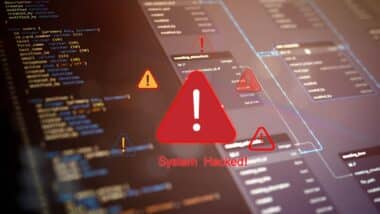
Being nervous about a background check is a common experience for any job applicant. Even an applicant with a squeaky-clean background may wonder what erroneous information could appear in the report.
It’s important for employees and employers alike to understand the basic rules under Florida law and the federal Fair Credit Reporting Act that investigators and employers are responsible for following.
Failure to follow the FCRA requirements in an employee background check can mean big trouble for an employer. Several employers have paid millions to settle class action claims over the ways they handled applicants’ background checks.
What information is typically included on a background check?
Background checks vary from one company to another and in their level of scrutiny. No matter how extensive a background check is, it is unlikely to present all the information that the employer seeks about a person.
Certain civil records related to bankruptcies and credit are prohibited from appearing in public records after a certain period, and certain states allow some categories of crimes to be sealed or expunged from public records, even though law enforcement will still have access to those details.
What is the 7-year rule?
When you undergo a background check for the purpose of employment in Florida, you are likely curious about how long certain records stay on your file. Most instances will stay on your record permanently, unless you’ve had your record expunged.
There are certain kinds of records such as paid tax liens, civil judgments, civil suits, and arrest records that are limited by the 7-year rule of the Fair Credit Reporting Act. These records must be taken off after 7 years, and Florida background check requirements abide by this rule as well.
Does a felony ever disappear from my record?
A felony will stay on a record permanently unless you are able to get it expunged. This means that any agency in law enforcement, bank, or employer is able to access this information at any point in time for background checks in Florida.
What is a Level 1 background check?
The state of Florida has specific rules that govern two levels of background checks: Level 1 and Level 2. These do not get used by the FBI or in any other state.
A Level 1 background check means that the person running the check is looking for information within your state on your name in addition to your employment history.
What Is A Level 2 Background Check?
In the state of Florida, a Level 2 background check refers to a state and national fingerprint-based check. This is required for any employee who holds a position of trust and responsibility. Anyone who has a previous felony on their record will most likely not be subject to Level 2 background checks in Florida.
What is the Ban the Box initiative?
The Ban the Box movement seeks to bar employers from asking job applicants about their criminal history, giving a person who has a felony on their background a fair chance at show their abilities and skills at the application and at the interview before that business completes a background check looking for crimes. Ban the box has not yet been put into effect in the state of Florida.
If you believe that your background check is revealing information that should no longer be there, now might be the time to speak to a lawyer about background checks in Florida.
Join a Free Florida Employee Background Check Class Action Lawsuit Investigation
If a company performed a background check on you as part of the pre-employment process in Florida in the last 5 years, an experienced employment attorney can help you determine if the employer complied with federal rules during that process.
This article is not legal advice. It is presented
for informational purposes only.
ATTORNEY ADVERTISING
Top Class Actions is a Proud Member of the American Bar Association
LEGAL INFORMATION IS NOT LEGAL ADVICE
Top Class Actions Legal Statement
©2008 – 2026 Top Class Actions® LLC
Various Trademarks held by their respective owners
This website is not intended for viewing or usage by European Union citizens.















7 thoughts onHow Many Years Do Employers Go Back for Background Checks in Florida?
Will A bankruptcy filed in 2010 and since been discharged, show up in a background check in 2021?
What if you were charged but not convicted of a crime in the state of Florida over 20 years ago. Will that still show up? I think I need some serious help with something. Thank you.
I just applied for an job when the hiring manger called me on Saturday to schedule my interview he ask if I ever been arrested I told him that I Had a misdemeanor battery charge he ask if it shows up in any background check he had not until today after my interview I received a email from First Advantage First flag was they only give you the FCRA info after completing the background check then I see this Compliance related Restrictions
I’m looking into becoming a licensed esthetician and the school says I would need to pass a level 2 background check. I have 2 felonies on my record from 8 years ago, 2012. Will this show up on my background check?
What if you were charged but not convicted of a crime. Will that still show up? I think I need some serious help with something. Thank you.
I also have the same issue when u find out plz contact me 561-379-7405 my name is Jackie
Please add me thank you